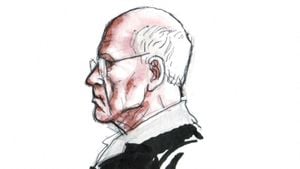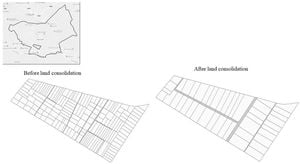With the Ontario provincial election just days away, political dynamics are heating up, especially in Sault Ste. Marie, where leaders from the Progressive Conservative (PC) and New Democratic (NDP) parties have ramped up their campaigning efforts.
On Sunday, Ontario PC Leader Doug Ford made a notable campaign stop at Algoma Steel to rally support for local candidate Chris Scott. During the event, Ford shared his views on the importance of northern Ontario’s mineral processing opportunities. He expressed concerns about the economic impact of Donald Trump’s tariffs, stating, "Donald Trump's tariffs would devastate our economy. They put hundreds of thousands of jobs on the line, including here in Sault Ste. Marie. Businesses will struggle, prices will rise, families will feel it. But we'll get through this together." Ford continued to highlight his administration's commitment to combating such challenges by advocating for diverse trade practices.
The premier was candid about the tariffs' potential threats, saying, "We will stare down any threat. We will stand up to any attack and we'll do whatever it takes to protect Ontario." When pressed for details on how the government would support Algoma Steel through these tariffs, Ford was less specific, hinting at potential plans without committing to any. "You don't have a plan without seeing what they're going to come at us with. We have a strong plan to reinvest..." he said, highlighting past investments made during his tenure, including initiatives involving electric arc furnaces.
Despite Ford’s endorsements of Scott, there are contrasting developments as the NDP has been vocal about Scott’s candidacy. The NDP released statements criticizing Scott, accusing him of contributing to the financial collapse of Laurentian University during his tenure at the Ministry of Colleges and Universities. They allege he oversaw decisions leading to the university's bankruptcy, which resulted in significant program closures and job losses, particularly impacting French language services. "Doug Ford’s hand-picked candidate for Sault Ste. Marie oversaw the financial collapse of one of Northern Ontario’s biggest bilingual public universities," the NDP’s statement exclaimed.
Scott’s response to the criticism emphasized his campaign focus on voter concerns rather than engaging with the NDP’s critiques. He stated, "I’m focused on talking to the people of Sault Ste. Marie... Earning the chance to be our community's voice at Queen's Park is much more important."
Adding to the election narrative is the perspective from the newly formed Ontario Party. Their candidate has taken aim at all major parties, expressing community discontent with traditional parties and vowing to advocate for those often left voiceless. This candidate encapsulated their sentiment by criticizing the government for failing to address the community's struggles with rising rents and inadequate healthcare, claiming, "Poverty has become the fastest growing industry in Ontario."
Ford, meanwhile, continues to advocate for significant investments in the province's infrastructure, including healthcare. He reiterated plans to connect every Ontarian with primary healthcare within the next four years through what he describes as significant investment. He pointed to past successes, noting, "We’ve hired over 15,000 new doctors... We’re building new hospitals, we’re building new medical universities," and emphasized the importance of having resources directed toward client services.
Throughout the campaign, Scott has been criticized for avoiding public debates, with the NDP stating, "It’s no wonder he isn’t showing up to debates or talking to local media. He can’t defend his record so he’s hiding from voters." Scott defended his absence, promoting grassroots engagement instead, where he prefers to meet constituents door-to-door rather than participate in formal events.
Overall, the competition is fierce as the election date approaches. The central themes of job security, economic policies, and community engagement are driving factors as residents prepare to cast their votes. Local issues, such as the primary care crisis and the impacts of U.S. tariffs, will likely influence voters' decisions.
Clearly, the stakes are high for all candidates, particularly as they navigate complex local sentiments and broader provincial challenges. The next few days leading to the election will be pivotal as each candidate aims to carve out their identity and convince voters they are the best choice for Sault Ste. Marie.



